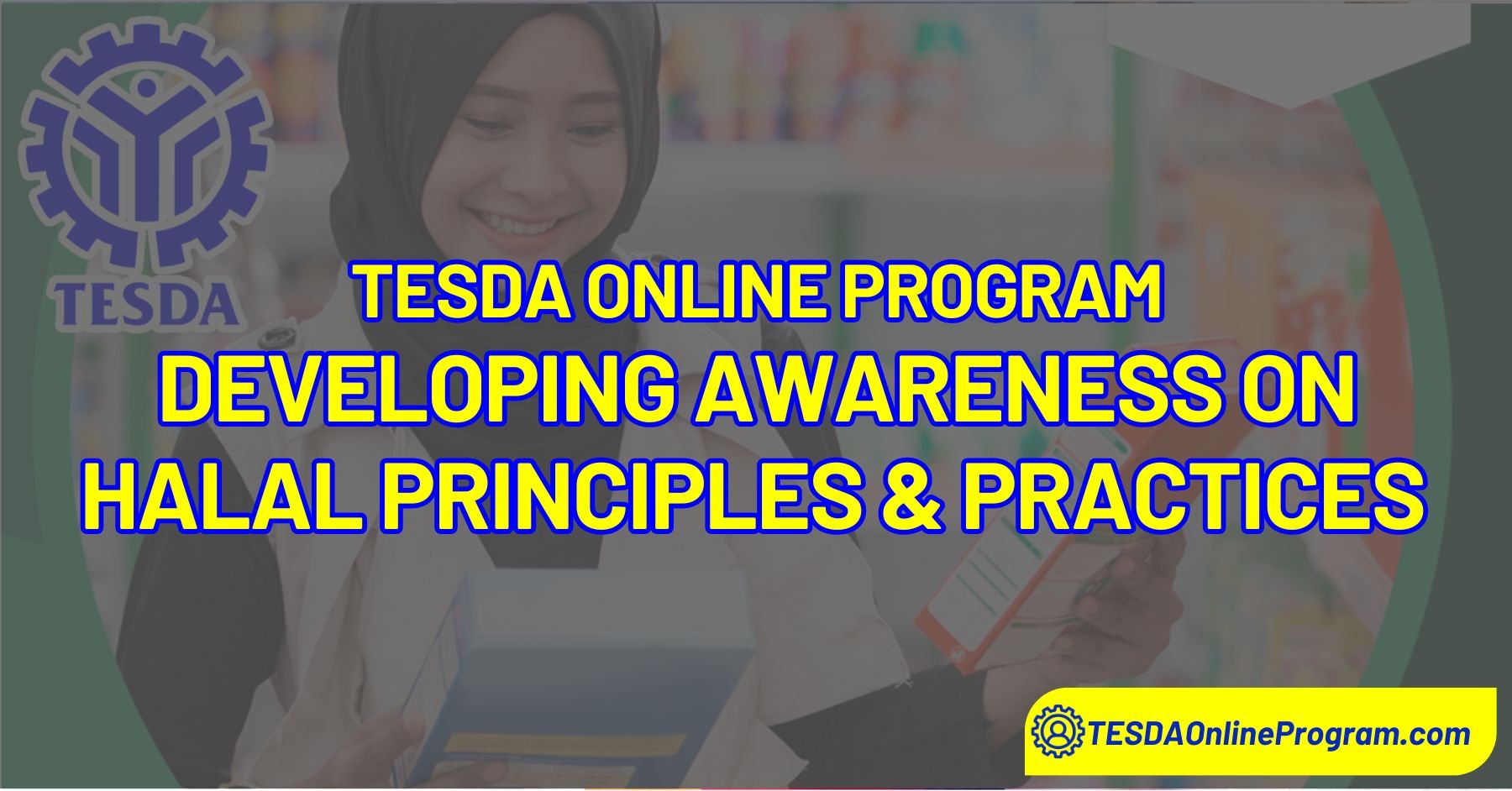Discover the fundamentals of Halal principles and practices with the TESDA Online Program. This course equips you with the knowledge and skills to effectively apply Halal guidelines in various industries, promoting inclusivity and cultural understanding.
Also read: TESDA Halal Awareness Course

Benefits
- Gain a comprehensive understanding of Halal principles and industry practices.
- Learn to apply Halal guidelines effectively in various sectors, including food, cosmetics, pharmaceuticals, and hospitality.
- Develop skills to comply with Halal standards and regulations in local and international markets.
- Enhance your knowledge of Halal dietary laws, food safety, and preparation practices.
- Understand cultural sensitivities and diversity in Halal banking, business, and marketing strategies.
- Improve your career opportunities by acquiring in-demand knowledge for the growing Halal industry.
- Promote inclusivity and cultural awareness in the workplace.
- Convenient learning through an accessible online platform.
Module
Developing Awareness on Halal Principles and Practices Online Course
Units Covered
Unit 1: The Fundamentals of Halal Program
Lesson 1: Halal Principles and Practices
Lesson 2: Understanding the Halal Industry
At the end of this unit, you should be able to:
- Define the basic concepts of Halal;
- Examine the Halal standards and regulations across local and international Halal markets.
Unit 2: Halal Applications in Various Sectors
Lesson 1: Exploring Halal Products and Services
Lesson 2: Halal Dietary Laws and Food Preparation
Lesson 3: Halal Banking, Business and Marketing Strategies
At the end of this unit, you should be able to:
- Evaluate the standards and significance of Halal cosmetics, pharmaceuticals, and hospitality services;
- Learn and follow the principles of Halal dietary laws, including food classification, slaughtering practices, and food safety standards; and
- Recognize the cultural sensitivities and diversity in halal banking and marketing strategies.
These units equip you with essential skills to apply Halal principles across industries. Enhance your career and promote inclusivity with the TESDA Online Program.
Also read: TESDA Halal Food Processing Courses
Frequently Asked Questions (FAQs)
1. What is the TESDA Online Program on Halal Principles and Practices?
The TESDA Online Program is an accessible online course that provides essential knowledge and skills to understand and apply Halal principles and practices across various industries such as food, cosmetics, pharmaceuticals, and hospitality.
2. Who can benefit from this course?
This course is ideal for individuals interested in learning about Halal standards, professionals working in industries requiring Halal compliance, and anyone looking to enhance their career in the growing Halal market.
3. Is there a certificate upon completion?
Yes, participants who complete the course will receive a certificate, which can enhance their credentials for Halal-related careers.
4. Why is Halal training important?
Halal training is essential for understanding inclusivity, cultural sensitivities, and compliance with local and international standards, helping businesses and professionals thrive in diverse markets.
5. Is the program free?
Yes, the TESDA Online Program is free and accessible to anyone interested in learning about Halal principles and practices.
6. How can this course improve my career prospects?
Completing this course equips you with in-demand knowledge and skills for the growing Halal industry, making you a valuable asset in sectors like food, hospitality, and marketing.
Summary
The TESDA Online Program offers a comprehensive course on Halal principles and practices, designed to equip learners with the knowledge and skills to apply Halal guidelines across industries like food, cosmetics, pharmaceuticals, and hospitality. Key benefits include understanding Halal standards, dietary laws, cultural sensitivities, and compliance with local and international regulations. The course is free, accessible online, and includes a certificate upon completion to enhance career prospects in the growing Halal industry.




